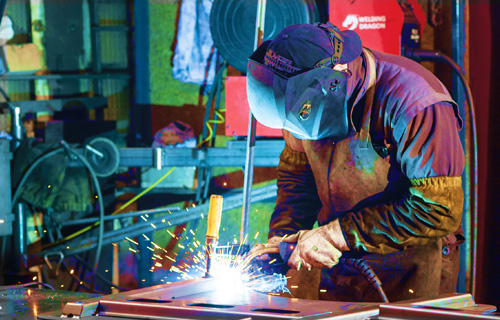IDEAS: Phased But Rapid Carbon Pricing Needed to Decarbonise Malaysia’s Steel Sector, Moving Towards RM200/tCO₂

Kuala Lumpur, 19 August 2025: The Institute for Democracy and Economic Affairs (IDEAS) released its latest policy paper, Carbon Pricing for the Malaysian Steel Industry: Incentivising Sustainable Growth, which estimates RM200 per tonne of CO₂ as the benchmark price to make low-carbon steel production commercially viable in Malaysia. The report recommends an immediate but phased introduction of carbon pricing to reach this benchmark by 2030.
Building on IDEAS’ earlier research (Policy IDEAS No. 79: Asserting Climate Change Leadership in ASEAN, 2024), the new paper assesses Malaysia’s current steel sector emissions profile and evaluates policy design options, including an emissions trading system (ETS). The proposed options would support government implementation of carbon pricing for the steel sector, contributing to Malaysia meeting its national climate commitments and maintaining competitiveness in a rapidly decarbonising global economy.
Malaysia’s steel sector has gotten significantly more carbon-intensive over the past decade, undermining Malaysia’s climate goals. In 2014, production was previously all low-emissions electric arc furnace (EAF) technology but emissions-intensive blast furnace (BF) methods now account for 70 percent of production. The average emissions intensity of steel production has more than quadrupled, undermining Malaysia’s net zero target and exposing the sector to new trade measures such as the EU’s Carbon Border Adjustment Mechanism (CBAM).
“A sufficiently high carbon price could shift Malaysia’s steel sector onto a low-emissions, high-value path. It could open the door for new technologies, reduce exposure to emerging trade restrictions and secure access to markets that are moving quickly to decarbonise. It could also generate up to RM3 billion in government revenue annually, which could be reinvested to support adjustments by steel producers and consumers. We also assess the impact on downstream sectors to be modest and manageable, ” said Assoc Prof Dr Renato Lima de Oliveira , co-author of the report and Senior Fellow at IDEAS.
“The next few years will be critical in deciding whether Malaysia’s steel sector can compete in a low-carbon global market or risks falling behind as other countries move ahead,” added Dr. Pieter Stek, another co-author of the report.
The study also warns that inaction could leave high-emissions steel producers facing higher costs and reduced access to international markets. An ETS tailored to Malaysia’s context is proposed to provide flexibility for industry, clearer long-term investment signals and credibility in climate governance. IDEAS calls on policymakers to pursue the recommended carbon pricing strategy without delay.
For more information, download the report on our website.
— ENDS —
Download the Media Statement PDF File Here
For enquiries, please contact:
Ryan Panicker
Assistant Manager, Advocacy and Events
T: 03 – 2070 8881/8882 | E: ryannesh@ideas.org.my

